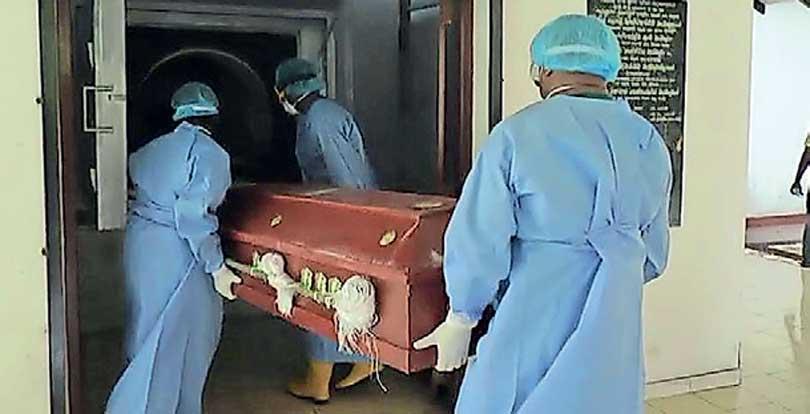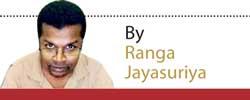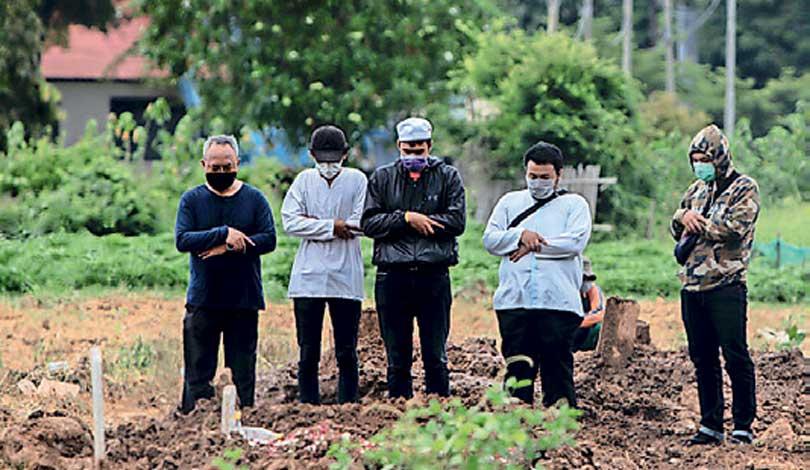- All they want was only to be buried adhering to all health conditions.
- Eminent lawyers represented the petitioners and argued that the state had provided no evidence
- We placed greater hopes in the courts. However, for reasons unknown our applications have been rejected. Now we feel dejected, let down and abandoned
20 civil and human rights activists have stated in connection with the recent Supreme Court judgement related to cremation of Covid-19 dead bodies. The full statement is as follows;
The faith the victims of forced cremation of COVID-19 or Covid-19 suspected dead had in the highest court in Sri Lanka has been shattered. Victims and communities are now left without recourse in Sri Lanka for the continued injustice they suffer.“We placed greater hopes in the courts. However, for reasons unknown our applications have been rejected. Now we feel dejected, let down and abandoned”, said a son of one of the victims who challenged the offensive regulation in court.
On Tuesday the country’s Supreme Court, by a majority decision refused to grant leave to proceed to the 11 applications filed by petitioners belonging to Muslim, Christian and Catholic communities challenging the Sri Lankan government’s forcible cremation policy because it violates the right to freedom of religion and belief of some faiths and that the said regulation violates the law under which the regulation has been made as the law itself permits either burial or cremation.
Several eminent lawyers represented the petitioners and argued that the state had provided no evidence that the burial of COVID-19 or suspected COVID-19 dead is a danger to public health. Hence, they said the government by imposing this new restriction violated the constitutionally protected and safeguarded the rights of religious beliefs and practice for whom burial is a critical religious practice, in addition to being a fundamental right.
One of the judges had dissented probably on the basis that there were issues that required consideration. Given the sensitivities and importance of the issue, it was felt that the court could have granted leave to be heard in full or referred it to a larger bench.
Some of the petitioners said on Tuesday that the distraught families of the victims have been asking them to explores the possibilities of how they could continue to fight for justice and hence would consider all options.
“We fully understand that due to the pandemic there is a public emergency under which certain rights can be limited including the manifestation of freedom of religion and belief. We also understand that Buddhists, Hindus, Christians, Muslims and others have all been affected by these restrictions; but in all other cases where rights are limited there is evidence of the need to do so,” said one of the petitioners against the policy on forcible cremation. It was brought to the attention that Catholics and Muslims, in deliberations have agreed to all the restrictions including with regard to gathering, handling, washing, praying and specialized mode of burying and all they want was only to be buried adhering to all health conditions.
Under international law limitations of rights such as the freedom to practice one’s religion has to be prescribed by law and the limitation must be necessary and proportionate.
Restrictions and limitations on religious gatherings, congregational prayers and mass celebrations of religious festivals can be necessitated because social distancing is vital to reduce the spread of the virus and are being adhered to and cooperated voluntarily.
“Over and over again we have asked the government to give us the reasoning for this policy and they have failed to provide any evidence that burial of COVID-19 dead can contribute to the spread of the virus or provide any health threat,” a son who did not consent for the cremation of his father and hence had to abandon the father’s remains said.
There have been national and international criticism of the government of Sri Lanka on its rare decision to cremate COVID-19 and COVID-19 suspected dead, despite clear guidelines by the World Health Organisation explaining that the burial of such victims poses no danger to public health. The Resident Coordinator of the United Nations office in Sri Lanka, United Nations special experts and regional human rights groups have separately written to the government calling for the policy to be changed to ensure COVID-19 dead were handled with dignity and human rights of all are protected. Numerous national civil society organisations, religious groups and individual activists have also written letters and signed petitions to the government calling for a change to the policy.
Human rights groups have been warning that the ethnocentric position of the government, in the context of the state’s failure to challenge hate campaigns and violence against Muslims, points to racism and discrimination targeting the country’s approximately nine per cent Muslim population.
These measures affect more than one religious group, but it is particularly terrifying Muslims for whom the burial of the dead is a non-negotiable religious practice. They feel targeted, bullied and threatened by the manner in which the government is acting on this.
As of3rd December 2020, Sri Lanka had over 25,000 cases of COVID 19, 124 deaths, of which over 50 were Muslims.
This press statement is signed by: Centre for Policy Alternative, International Centre for Ethnic Studies, Law and Society Trust, Women’s Action Network, Alliance for Minorities, Affected Women’s Forum, Suriya Women’s Development Centre, Sisterhood initiative, Hashtag Generation, Rural Development Foundation, National Peace Council, Mannar Women’s Development Federation, National Fisheries Solidarity Movement, Human Elevation Organisation, Eastern Social Development Foundation, Islamic Women’s Association for Research and Empowerment, Association of the Parents and Family Members of the Disappeared, Muslim Women’s Development Trust, AalumaiWomen’s Group, Nisha Development Centre,
http://www.dailymirror.lk/news-features/We-will-continue-to-struggle-for-justice-and-the-right-to-bury-our-dead/131-201291
"Studies have indicated that hard dry fish is not associated with cancer whereas soft dry fish is associated with cancer."
Recently some prominent medical doctors in Sri Lanka claimed in electronic media that beef is a carcinogenic food which means a causative agent of cancer. We as responsible medical professionals would like to analyse this  statement in the light of science and give a balanced, neutral opinion on “What causes cancer.” In this article we will be presenting a broad overview of cancer-causing foods, food habits and other lifestyle factors backed by scientific evidence.
statement in the light of science and give a balanced, neutral opinion on “What causes cancer.” In this article we will be presenting a broad overview of cancer-causing foods, food habits and other lifestyle factors backed by scientific evidence.
Cancer is one of the leading causes of death globally and is second only to cardiovascular diseases. It was responsible for 9.6 million deaths in 2018. More than two thirds of these deaths occurred in low and
middle-income countries.
Five leading cancers in the world are lung, breast, colorectal, prostate and skin cancer. In 2014 the commonest cancer in Sri Lanka was breast cancer followed by oral, thyroid, bowel (colorectal) and oesophageal (food pipe) cancer. Generally, the incidence of cancer increases with age. Different cancers affect males and females differently. For instance, the breast cancer affects females mostly whereas most sufferers of lung cancer are males.
Tobacco smoking has been implicated in 17 different cancers. In addition to that there is limited evidence of causing breast cancer and leukaemia in smoker’s children. Even second-hand smoking (that is, people who passively inhale the air contaminated with tobacco smoke) is a well-recognised cause of lung cancer.
Consumption of alcoholic beverages is associated with breast (female), colorectal, laryngeal, liver, oesophageal, oral and pharyngeal cancers. According to WHO data, on average a Sri Lankan male (≥15 years of age) consumes 18.9 litres of alcohol and a female consumes 6.7 litres of alcohol per year. These figures have steadily increased over the past 40 years.
Meat is an important source of protein, some vitamins (e.g. vitamin A and B) and minerals (e.g. zinc, iron) . Amino acids are organic compounds that combine to form proteins. They are the building blocks of life. Out of 28 amino acids found in humans, 9 cannot be synthesised in our body. They are known as essential amino acids. Meat is an important source of essential amino acids. Therefore, they should be provided with diet. (11) (12)
According to IARC, the consumption of red meat is classified as “Probably carcinogenic to humans”. This means that unprocessed red meat is not a confirmed causative factor of cancer. Red meat refers to all types of mammalian muscle meat and this includes beef, lamb and pork. Chicken, turkey, duck, goose and rabbit do not fall under the category of red meat. The processed meat like; sausages, salami, ham and bacon are categorised as “carcinogenic to humans” (category 1), i.e., proven to cause cancer, but it is dependent on quantity eaten.
The other important factor to consider is the amount of red meat or processed meat consumed. It appears that higher amount of their intake is associated with cancer. It is clearly shown that the increased intake of fruits and vegetables protects against cancer. There is conflicting reports regarding the role of fish and sea food consumption in cancer prevention and causation. There is evidence of Cantonese-style salted fish (dry fish/ ‘Karawala’) causing nasopharyngeal cancer specially if consumed during young ages. Studies have indicated that hard dry fish is not associated with cancer whereas soft dry fish is associated with cancer. In summary, processed meat has been shown to be definitely a cancer-causing food while red meat is categorised as potentially carcinogenic, but only if consumed in large quantities. Preserved foods, saturated/animal fats, cholesterol, high sugar foods, spicy foods and refined carbohydrates have a positive association with bowel cancer. Vegetables and fruits play a protective role against bowel cancer.
Trans-fat is an important cancer-causing agent. Many routinely consumed food items have high concentration of trans-fat. Frying with coconut oil is less likely to produce trans-fat, but when it is re-used, the production of transfat will increase. Routine physical activity is linked to reduced incidence of many types of common cancers. Additionally, it reduces the risk of death among patients with breast and bowel cancer. Long-term, uncontrolled diabetes is a risk factor for cancers. Obesity is also proven to be a risk factor for cancer.
The causal relationship with processed meat or red meat and bowel cancer should be understood in the correct context. Moreover, there are many other foods and lifestyle factors which can lead to cancer. Therefore, it is important to strike a balance between necessity and harm when making food choices and following different lifestyles. Making healthy lifestyle changes is the most effective way to reduce cancer risk. These include regular exercise, eating a healthy diet, avoiding smoking, and not drinking too much alcohol.
Dr Kamal Naser, MBBS (Jaffna), MD (Colombo), FRCP(Lond), FRCP(Glasg), FACE Consultant Physician, Sherwood Forest NHS Hospitals Trust, UK
Dr Suhail Abdul Wahab MBBS (Peradeniya), MRCP(UK), Sherwood Forest NHS Hospitals Trust, UK)
http://www.dailymirror.lk/opinion/Does-beef-cause-cancer/172-201446

 When your country is doing something totally different from what the rest of the world does, literally in exact opposition to the common sense practised and adopted by 194 countries in the world, things aren’t just right.
When your country is doing something totally different from what the rest of the world does, literally in exact opposition to the common sense practised and adopted by 194 countries in the world, things aren’t just right. 